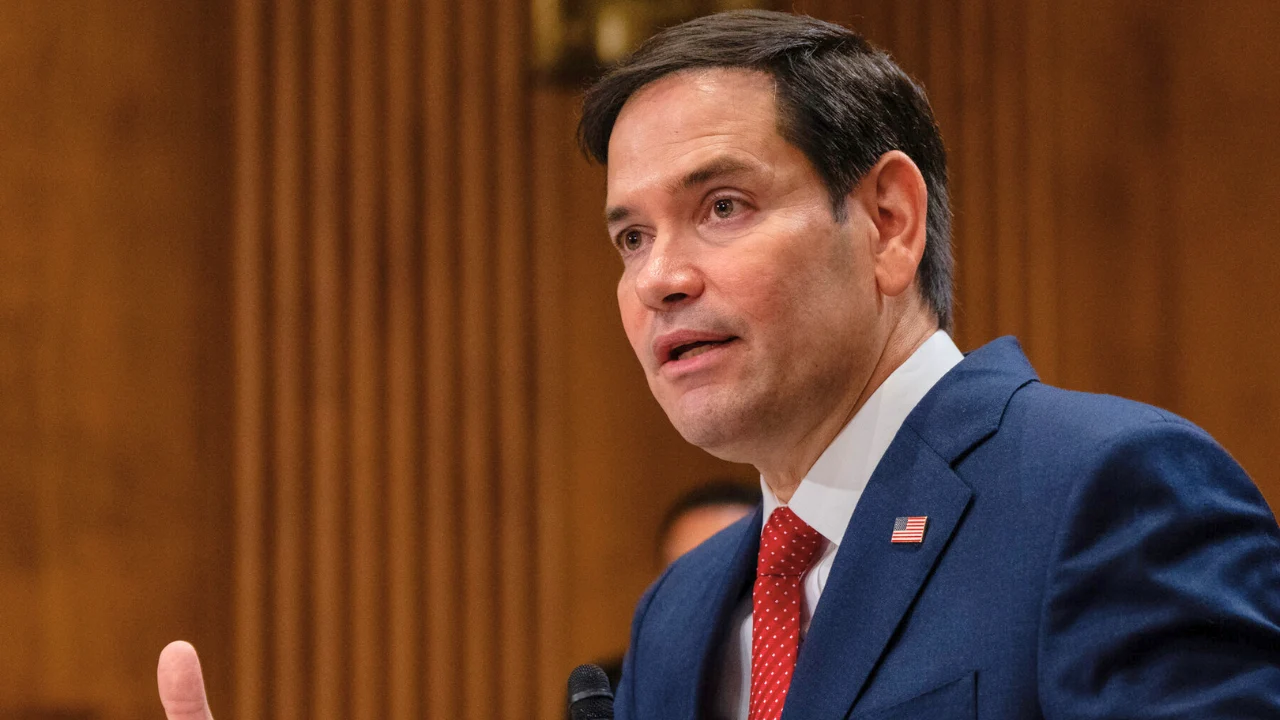Secretary of State Marco Rubio on Wednesday announced a new visa restriction policy targeting foreign officials and others deemed complicit in censoring Americans online. The policy, which cites Section 212(a)(3)(C) of the Immigration and Nationality Act, allows the Secretary of State to deny entry to foreign nationals whose presence in the United States “would have potentially serious adverse foreign policy consequences.”
The announcement was delivered both in a formal State Department press release and in a series of posts by Rubio on X, formerly Twitter. “For too long, Americans have been fined, harassed, and even charged by foreign authorities for exercising their free speech rights,” Rubio wrote. “Today, I am announcing a new visa restriction policy that will apply to foreign officials and persons who are complicit in censoring Americans. Free speech is essential to the American way of life – a birthright over which foreign governments have no authority.”
Rubio added that “foreigners who work to undermine the rights of Americans should not enjoy the privilege of traveling to our country,” asserting that “the days of passive treatment for those who work to undermine the rights of Americans are over.”
The Trump administration has increasingly turned its attention toward international speech restrictions that it says are spilling into U.S. digital spaces. Officials have specifically criticized laws in Europe that regulate digital platforms under frameworks such as the European Union’s Digital Services Act and Digital Markets Act. These regulations, while aimed at combating hate speech, disinformation, and monopolistic behavior, have come under fire from Republican leaders who argue they amount to censorship with global implications.
Vice President JD Vance, speaking at the Munich Security Conference in February, accused European governments of using misinformation laws to criminalize dissenting views. He cited recent legal actions in the United Kingdom, Sweden, and Germany as examples of what he called a broader “retreat from free expression.” Vance highlighted the U.K.’s prosecution of individuals for silent prayer near abortion clinics and threats to extradite Americans accused of spreading misinformation online during last year’s unrest. Other examples included the conviction of a Christian activist in Sweden for Quran burning and the annulment of Romania’s 2024 presidential election over alleged foreign interference.
The policy’s announcement also follows recent events involving tech platforms. Elon Musk’s X platform has faced legal scrutiny in several countries, including Brazil and EU member states, over its handling of disinformation. While Rubio did not name specific cases, some observers have suggested the visa policy may be intended to protect American tech platforms from being subjected to foreign moderation demands.
The official State Department release stated that it is “unacceptable for foreign officials to issue or threaten arrest warrants on U.S. citizens or U.S. residents for social media posts on American platforms while physically present on U.S. soil.” It also warned that “foreign officials [who] demand that American tech platforms adopt global content moderation policies” would now risk being barred from entering the United States. The government indicated that certain family members of the targeted individuals may also fall under the restrictions.
While the State Department has not released a list of individuals affected by the policy—consistent with the agency’s longstanding practice of confidentiality in visa matters—analysts note that the uncertainty may encourage self-censorship or policy changes by those who risk being denied entry.
The policy received praise from House Republicans, including Judiciary Committee Chair Jim Jordan, who has led investigations into content moderation practices by tech firms and foreign influence. “Excellent news!” the committee posted on X, stating that the move would help hold foreign censorship efforts accountable.
However, the decision has also attracted criticism. A former State Department official, speaking anonymously to Politico, questioned whether the policy would be consistently applied, asking whether it could result in visa bans for foreign companies merely complying with their domestic speech laws, even in cases targeting extremist content.
Critics also pointed to a perceived double standard in the Trump administration’s domestic actions. In recent months, the administration has moved to revoke visas of international students accused of supporting pro-Palestinian activism, including a widely reported case involving Turkish student Rümeysa Öztürk. She was arrested after publishing a newspaper column criticizing Israel’s military actions in Gaza. Rubio later confirmed her detention was related to that content, prompting accusations of hypocrisy from political opponents who argue that the administration is suppressing speech it disagrees with while claiming to defend it overseas.
Despite these criticisms, Rubio’s office has framed the visa restrictions as part of a broader campaign to defend American constitutional principles. “We will not tolerate encroachments upon American sovereignty,” the secretary said in his official statement, “especially when such encroachments undermine the exercise of our fundamental right to free speech.”
Whether the new policy has a measurable impact on foreign government behavior or results in further diplomatic tensions remains to be seen. European officials have so far offered limited public comment. A spokesperson for the European Commission told Politico that the visa policy “seems to be of a general nature,” offering no further response.
This latest move marks an extension of a strategy that dates back to previous administrations, which also imposed visa bans for corruption, human rights abuses, or political repression abroad. Under the Trump administration’s second term, however, the scope of visa-based sanctions appears to be expanding into new ideological and digital battlegrounds.

